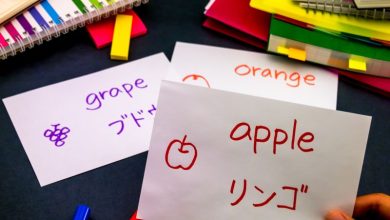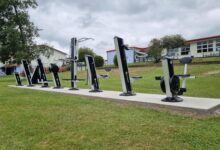Updated secondary subjects raise questions
Educators have raised questions about the Ministry of Education’s new secondary school subjects, set to be phased in from 2028.

New secondary school subjects announced by Minister of Education Erica Stanford have raised questions from the secondary teaching sector about how decisions were made, and what support would be available.
Read the latest print edition of School News online HERE.
The subjects will be part of the new senior curriculum planned to replace NCEA. Stanford said the subjects will “create a future focused curriculum that recognises the growing importance of STEM”. New specialist subject areas will include:
- Earth and space science
- Statistics and data science
- Electronics and mechatronics
- Further maths
- Civics, politics and philosophy
- Media, journalism and communications
- Te Mātai i te ao Māori
- Pacific studies
- Music technology.
Industry-led subjects will also be introduced, including:
- Primary industry
- Health and wellbeing services
- Outdoor education
- Automotive engineering
- Building and construction
- Infrastructure engineering
- Mechanical engineering
- Tourism and hospitality.
Industry Skills Boards would be commissioned to develop the subjects for the Ministry of Education. Outdoor education and tourism and hospitality are currently NCEA subjects. Peak industry bodies for these teachers had previously expressed concern they would be sidelined in the redevelopment of the senior curriculum, with Tourism Teachers Aotearoa New Zealand chair Callum Green saying that making tourism a vocational subject would undo years of work.
Related School News story: Concerns over low pass-rates for new NCEA corequisites
“We worked with industry for four or five years very closely to develop a real future-focused, academically rigourous subject. But what this means now is that this subject will go back to being a unit standard subject and unfortunately in schools it is not seen as being a worthwhile subject for a lot of students, which is very disappointing,” Green told RNZ.
In her announcement, Stanford said “these pathways will be industry led and tertiary aligned so they meet what is expected in the professional world, making staying at school relevant for every child, no matter what their career pathway.
“This will enable students to leave school with a secondary and a tertiary qualification. We’re having one integrated system where all subjects, whether Ministry led or industry-led, are equal.”
Te Marautanga o Aoteroa will also have its own detailed curriculum in te reo Māori including new subjects like Tātai arorangi (Māori traditional systems of Earth and Sky) and Te ao whakairo (Māori carving).
Related School News story: Changes to the NCEA timeline garner mixed reactions
Generative AI will be learnt about and used in many subjects, said Stanford. Students would learn about digital systems, machine learning, cybersecurity and digital ethics. A specialist subject for Year 13 on Generative AI will be investigated for development.
Stanford said schools would receive an “implementation package” including PLD, curriculum days, classroom resources, exemplars and guidance for all year levels.
The new curriculum is set to be phased over three years, beginning with Year 11 students in 2028 and following the cohort until 2030.
Sector raises concerns
With secondary principals saying staffing is in “crisis”, and schools already struggling with curriculum changes, the sector has raised concerns over the Government announcement.
PPTA Te Wehengarua President Chris Abercrombie has said teachers and students lack certainty about the future.
“The secondary school subject list released today is very short on detail and provides no explanation of how decisions were made around it,” he said. Abercrombie said more te reo Māori pathways were positive, but also lacked detail.
Abercrombie said the announcement was “putting the cart before the horse” as the Year 1 to 10 curriculum has not been fully released.
“It means we have no idea, for example, of the prior learning that these Year 11 to 13 subjects will build on.”
Abercrombie also raised concerns about the planned industry-based subjects.
“We have not been given any details about how they will work, who will teach them, or how they will be funded. Adding to our concern is the fact that the Industry Skills Boards, which are in charge of them, don’t come into effect until next year.”
He called on the Government for more details on the support that would be available to teachers and schools to implement the new subjects.
“We know from much experience that major changes succeed or fail depending on how well-resourced and supported the implementation of them is.
“We believe that the key to success, when it comes to curriculum change, is that it needs to be manageable, well-resourced and values teacher expertise.”









